Cities as Solutions to Climate Change: Perspectives from IPCC Authors
About the Conference
The 9th annual Hixon Center Urban Conference was jointly convened by the Hixon Center for Urban Ecology and the Yale Planetary Solutions Project. The conference brings together researchers and practitioners focused on the potential impacts that cities have on climate change around the globe and features two vice-chairs and seven authors from the Intergovernmental Panel on Climate Change (IPCC), the United Nations body for assessing the science related to climate change.
The conference was held in a hybrid format: streamed online and with limited in-person attendance at the Yale School of the Environment. The conference was free, open to the public and recorded.
Speaker Information
Michael C. Crair obtained his doctoral degree in physics from the University of California, Berkeley, and did postdoctoral training in physics and neuroscience at Kyoto University and Kyoto Prefectural Medical School in Japan and in neuroscience at the University of California, San Francisco. He was a faculty member at Baylor College of Medicine in Houston, Texas before coming to Yale as a member of the Department of Neuroscience in 2007. He has directed Yale’s Vision Core Program, the Graduate Program in Neuroscience, was Deputy Chair of the Department of Neuroscience from 2015-2017, then Deputy Dean for Scientific Affairs (Basic Science Departments) at the School of Medicine from 2017-2020 when he became the Vice Provost for Research at Yale University.
Dr. Crair maintains an active research program that develops and employs advanced imaging techniques to examine the basic mechanisms that mediate brain circuit development. He has made fundamental contributions to our understanding of neural activity in the developing brain, for instance by demonstrating that early spontaneous neuronal activity is an essential part of normal brain development. He is currently exploring the mechanisms by which this activity is generated and how it shapes brain circuit development. He has been awarded numerous honors for his research and teaching, including the Esther A. and Joseph Klingenstein Foundation Fellowship Award in the Neurosciences, the Marc Dresden Excellence in Graduate Education Award, and a NARSAD-Sidney R. Baer Jr. Foundation Young Investigator Award. He has also been named an Alfred P. Sloan Foundation Research Fellow, a John Merck Fund Scholar and the March of Dimes Foundation’s Basil O’Connor Fellow.
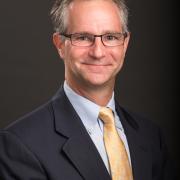
Speaker Information
In 2015, Ko Barrett was one of the first women elected to serve as a Vice Chair of the Intergovernmental Panel on Climate Change (IPCC), a position she still holds. Ms. Barrett chairs the Gender Action Team and the Science Board for the Scholarship program and brings a talent for facilitating consensus to advance the work of the organization.
For over 15 years, she represented the United States on delegations charged with negotiating and adopting climate science and policy outcomes. In addition to her work with the IPCC, she served as a lead negotiator for the United States on the United Nations treaty on climate change. Ko Barrett is widely recognized as an expert on climate policy, particularly on issues related to climate impacts and strategies to help society adapt to a changing world.
Ko Barrett also serves as the Senior Advisor for Climate at the National Oceanic and Atmospheric Administration. In this role, Ms. Barrett is responsible for providing strategic advice and direction within NOAA to enable the Agency to align, integrate, and extend its capabilities to best provide the climate services needed to address the climate challenge. She represents NOAA’s equities in whole-of-government efforts to transform the economy and achieve US climate goals to reduce emissions and stabilize global temperature by mid-century.
At NOAA, Ms. Barrett was the Deputy Assistant Administrator for Programs and Administration in the Office of Research for five years and held leadership positions in its Climate Program Office. Prior to joining NOAA in 2005, Barrett was the Director of the Global Climate Change program at the US Agency for International Development and oversaw climate activities in more than 40 countries. She has won multiple awards for contributions both to NOAA and the nation, notably NOAA Administrator’s Awards in 2010 and 2015, the U.S. Department of Commerce Gold Award for Leadership in 2022, the U.S. Department of State Meritorious Honor Award in 2011, and a Nobel Peace Prize shared with members of the IPCC in 2007. In 2021, Ms. Barrett was awarded a Distinguished Presidential Rank Award, one of the most prestigious awards in the federal career civil service.
Barrett has a Bachelor of Science degree in environmental studies from the University of North Carolina Asheville, and was named University Scholar as well as Distinguished Research Scholar and elected a member of the Sigma Xi, the Scientific Research Society. In 2017, she was the commencement speaker and received an honorary Doctor of Science degree. Ms. Barrett currently serves on the UNC-Asheville Alumni Board and the David and Lucille Packard Foundation Board of Trustees.

Speaker Information
Angel Hsu is an Assistant Professor of Public Policy and Environment, Energy and Ecology at the University of North Carolina-Chapel Hill. She is Founder/Director of the Data-Driven EnviroPolicy Lab, an interdisciplinary research group that innovates and applies quantitative approaches to pressing environmental issues. Her research explores the intersection of science and policy and the use of data-driven approaches to understand environmental sustainability, particularly in the areas of climate change and energy, urbanisation and air quality. She is a contributing author to the IPCC Sixth Assessment Report and was the lead author of the 2018 UNEP Emissions Gap Report. Focusing particularly on China and the Global South, Dr. Hsu has provided expert testimony to the U.S. Senate Committee on Energy and Natural Resources and the US-China Economic Security and Review Commission and is a member of the National Committee on US-China Relations and a Public Intellectual Program Fellow. In addition to publishing in academic journals, Dr. Hsu has been committed to public outreach and was a TED 2018 Age of Amazement and 2020 Climate Countdown Speaker and recognized as a 2022 Bloomberg New Economy Catalyst and inaugural Grist 50 leader. She has also co-chaired the World Economic Forum’s Global Future Council on Fourth Industrial Revolution and Global Public Goods. She holds a PhD in Environmental Policy from Yale University.

Speaker Information
Benjamin K. Sovacool is the Director of the Boston University Institute for Global Sustainability (IGS) and a Professor in the Department of Earth & Environment. He works as a researcher and consultant on issues pertaining to global energy policy and politics, energy security, energy justice, climate change mitigation, and climate change adaptation. More specifically, his research focuses on renewable energy and energy efficiency, the politics of large-scale energy infrastructure, designing public policy to improve energy security and access to electricity, the ethics and justice of energy, and building adaptive capacity to the consequences of climate change.
His research has been endorsed by U.S. President Bill Clinton, the Prime Minister of Norway Gro Harlem Brundtland, and the late Nobel Laureate Elinor Ostrom, among others. He was a Lead Author of the Intergovernmental Panel on Climate Change’s Sixth Assessment Report (AR6), published in 2022, and an Advisor on Energy to the European Commission’s Directorate General for Research and Innovation in Brussels, Belgium.
Sovacool has played a leadership role in winning collaborative research grants worth more than $28.2 million in directly managed funds, including those from the U.S. Department of Energy, U.S. National Science Foundation, MacArthur Foundation, Rockefeller Foundation, Energy Technology Development and Demonstration Program of Denmark, the Danish Council for Independent Research, the European Commission and the European Research Council. In the United Kingdom, he has served as a Principal Investigator on projects funded by the Economic and Social Research Council, Natural Environment Research Council, and the Engineering and Physical Sciences Research Council.
He is the recipient of multiple national and international awards and honors, including the “Distinguished Graduate Alumni Achievement Award” from his Alma Mater Virginia Tech, the 2019 USERN Prize for his work on “Social Justice in an Era of Climate Change and Energy Scarcity,” the “Dedication to Justice Award” given by the American Bar Association, and a “Distinguished Visiting Energy Professorship” at the Environmental Law Center at Vermont Law School. He is also an Academician of the Academy of Social Sciences in the United Kingdom.
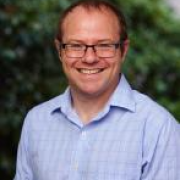
Speaker Information
Şiir Kılkış is Senior Researcher in Urban Systems at The Scientific and Technological Research Council of Turkey. She served as Lead Author in the Intergovernmental Panel on Climate Change (IPCC) Sixth Assessment Report Working Group III on Mitigation of Climate Change with a focus on urban systems and is one of the authors of the Summary for Policymakers and Technical Summary. Her Cross-Working Group efforts focused on Cities and Climate Change. As alumna of KTH Royal Institute of Technology and Georgetown University, where she graduated magna cum laude with honors as the gold medalist in Science, Technology, and International Affairs, her research work involves a multi-disciplinary approach to climate mitigation and sustainable development. Among pioneering research efforts, she established urban emissions scenarios within the SSP-RCP framework globally as well as urban emissions and land use efficiency scenarios for 420 urban areas, analyzed mitigation options based on multi-dimensional feasibility and SDG linkages, benchmarked 120 urban systems worldwide, and developed a Rational Exergy Management Model to curb CO2 emissions with related net-zero district targets and urbanization algorithms. As Associate Professor in the Earth System Science Graduate Program of Middle East Technical University, she coordinates climate change and sustainable urban systems. She is a member of the Earth Commission Working Group on the translation of planetary boundaries to local scales, Steering Committee of the Future Earth Urban Knowledge Action Network with a focus on urban systems and global environmental change, and is newly elected to the Mission Board on Climate-Neutral Cities. She takes place among the world’s top scientists and researchers in the fields of energy, environmental science, and emerging/strategic technologies, and is an International Scientific Committee member of the International Centre on Sustainable Development of Energy, Water and Environment Systems.
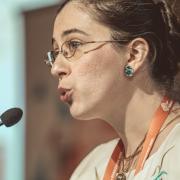
Speaker Information
Dr. Narasimha D. Rao’s research examines the relationship between energy systems, human development and climate change. He is the recipient of the European Research Council (ERC) Starting Grant (2015-2019) for a project entitled Decent Living Energy -energy and emissions thresholds for providing decent living standards for all. His research interests also include investigating income inequality, infrastructure, and climate policy. His methods include household energy modeling, econometrics, input-output, and policy analysis.
Dr. Rao is also a Senior Research Scholar at the International Institute for Applied Systems Analysis. He received his PhD from Stanford University in Environment and Resources, Masters from Massachusetts Institute of Technology in Electrical Engineering and Technology Policy, and A.B from Dartmouth College.
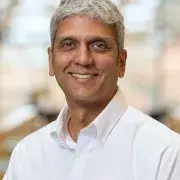
Speaker Information
Eric Masanet holds the Duncan and Suzanne Mellichamp Chair in Sustainability Science for Emerging Technologies at UCSB, where he leads the Industrial Sustainability Analysis Laboratory. His research develops energy and materials systems models to identify technology and policy pathways for achieving net-zero industrial systems. He has published over 150 scientific articles, technical reports, and technology and policy guidebooks on these topics to date.
Throughout his career, he has been dedicated to public service to inform and advance energy and climate technology policy for the manufacturing and hi-tech sectors. Such service currently includes roles as a Consultant on the Technology Team at the U.S. White House Office of Science and Technology Policy, as an author of the Fifth U.S. National Climate Assessment (Chapter 32: Mitigation), and as a member of the Research Advisory Board at the American Council for an Energy Efficient Economy (ACEEE). Previous service includes leadership of the Energy Demand Technology Unit at the International Energy Agency in Paris (2015-2017), service as a U.S. Lead Author (2019-2022) for Working Group III of the IPCC’s Sixth Assessment Report (Chapter 5: Demand, and Technical Summary), and as a member of the U.S. Technical Advisory Group to the ISO 50001 International Management System Standard for Energy (2008 – May 2011).
He also currently holds a concurrent Faculty Scientist position at Lawrence Berkeley National Laboratory (LBNL), where he supports research on embodied carbon analysis, industrial energy modeling, and energy analysis of information technology systems.
From 2012-2019 he was an Associate Professor in the McCormick School of Engineering and Applied Science at Northwestern University. He started his research career at LBNL, where he was previously Deputy Head of the International Energy Studies Group. While at LBNL, he held a joint research appointment in UC Berkeley’s College of Engineering, where he also served as Program Manager for the Engineering and Business for Sustainability Certificate Program. He is also the former Editor-in-Chief of Resources, Conservation, and Recycling, the leading peer-reviewed journal on sustainable resource systems.
He holds a PhD in mechanical engineering with an emphasis in sustainable manufacturing from UC Berkeley.
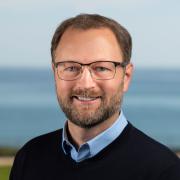
Speaker Information
Kevin J. Krizek is a Professor of Environmental Design at the University of Colorado Boulder and currently serves as a Sr. Advisor within the Office of the Under Secretary for Economic Growth, Energy and the Environment at the U.S. Department of State. He has been examining the environmental, social, and health impacts of our urban transport choices for a quarter century. Through his work both domestic and international, he’s developed informed insights into solving one of the world’s most pressing problems, sharing remedies across borders that are both aspirational and evidence-based. Krizek has authored or edited several books, most recently: Advanced Introduction to Urban Transport Planning (2021), Metropolitan Transport and Land Use (2018, 2nd ed.) and End of Traffic and the Future of Access (2017, 3rd ed.). His recent Ted talk focuses on the value of smaller vehicles. He earned a Ph.D. in Urban Design and Planning and M.S.C.E. from the University of Washington in Seattle. His master’s degree in regional planning is from the University of North Carolina at Chapel Hill, and his undergraduate degree in engineering was at Northwestern University. His research has been awarded appointments at the University of Bologna (U.S.-Italy Fulbright Scholarship, ‘14), Radboud University, Nijmegen (visiting professor of “Cycling in Changing Urban Regions,” (‘14-‘17), and Fulbright Specialist in spatial economics to Colombia (EAFIT University, ‘17). He was a Leopold Leadership Fellow (‘13-‘14) and served as the scientific director for the Velo-city 2017 research symposium in the Netherlands—held as part of the world’s largest conference on bicycling.

Speaker Information
Jeff Speck, FAICP, FCNU, LEED-AP, Honorary ASLA
Jeff Speck is a city planner and author who advocates internationally for more walkable cities. As Director of Design at the National Endowment for the Arts from 2003 through 2007, he presided over the Mayors’ Institute on City Design and created the Governors’ Institute on Community Design. Prior to his federal appointment, Mr. Speck spent ten years as Director of Town Planning at DPZ & Co., the principal firm behind the New Urbanism movement. Since 2007, he has led Speck & Associates, a private design consultancy serving mainly American cities.
With Andres Duany and Elizabeth Plater-Zyberk, Mr. Speck is the co-author of Suburban Nation, which the Wall Street Journal calls “the urbanist’s bible.” His 2012 book Walkable City was the best selling city-planning title of the past decade and has been translated into seven languages. He is also the writer of The Smart Growth Manual and Walkable City Rules.
Jeff Speck has been named a fellow of both the American Institute of Certified Planners and the Congress for New Urbanism. He is the 2022 recipient of the Seaside Prize, whose former awardees include Jane Jacobs and Christopher Alexander. His TED talks and YouTube videos have been viewed more than five million times.
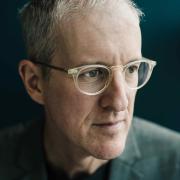
Speaker Information
An urban and land change scientist, Karen Seto is one of the world’s leading experts on contemporary urbanization and global change. She uses satellite remote sensing, field interviews, and modeling methods to understand how urbanization will affect the planet, including land change, food systems, biodiversity, and climate change. She has pioneered methods to reconstruct urban land use with satellite imagery and has developed novel methods to forecast urban expansion. She has conducted urbanization research in China for twenty years and in India for more than ten. Dr. Seto has served on numerous national and international scientific bodies. She was a coordinating lead author for the 2022 IPCC 6th Assessment Report and the 2014 IPCC 5th Assessment Report. For both reports she co-led the chapter on urban mitigation of climate change. She currently co-chairs the U.S. National Academies Climate Security Roundtable, established by the direction of Congress to help better understand and anticipate the ways climate change affects U.S. national security interests. She also co-chairs the U.S. National Academies Subcommittee on U.S.- China Scientific Engagement. From 2000 to 2008, she was faculty at Stanford, where she held joint appointments in the Woods Institute for the Environment and the School of Earth Sciences. She has received many awards for her scientific contributions, including the Outstanding Contributions to Remote Sensing Research Award from the American Association of Geographers.
Dr. Seto is an elected member of the U.S. National Academy of Sciences, the American Academy of Arts and Sciences, the Connecticut Academy of Science and Engineering, and a Fellow with the American Association for the Advancement of Science. She received a PhD in Geography from Boston University.
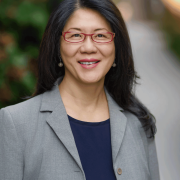
Speaker Information
Diana Ürge-Vorsatz serves as Vice Chair of IPCC’s Working Group III. She is a Professor at the Department of Environmental Sciences and Policy at the Central European University (CEU). She holds a Ph.D. from the University of California (Los Angeles and Berkeley). She served as the Acting Head of Department at CEU in 2002-2003 and directed the PhD program in 2003 – 2004. Diana was a Coordinating Lead Author in two Assessment Reports of the IPCC. She served on the United Nation’s Scientific Expert Group on Climate Change, and led the buildings-related work in the Global Energy Assessment. She serves as associate editor of the journal “Energy Efficiency”, and is a member of the Editorial Board of “Annual Reviews of Environment and Resources”. She was a Visiting Professor at the International Christian University of Tokyo and a Research Scholar at IIASA (International Institute for Applied Systems Analysis). She has been serving on the Governing and Advisory boards of several organizations, including Innogy (formerly RWE), the Austrian Climate and Energy Fund (KLIEN), the European Climate Foundation (ECF), the UK Energy Research Centre (UKERC), and the Hungarian Energy-Efficiency Cofinancing Program (HEECP), and the Club of Budapest. She is regularly invited to high-level review panels, such as that evaluating the work at Lawrence Berkeley National Laboratory and the EU’s Joint Research Centre. She received the Hungarian Republic’s Presidential Award “Medium Cross” in 2008, as well as the “Role Model” award in 2009 and was invited as a member of Academia Europaea in 2017.

Speaker Information
Galina Churkina holds a diploma in Mathematics from the Moscow State Lomonosov University in Russia and PhD from the School of Forestry, University of Montana, USA. Galina researched and taught at the flagship institutions and universities including Yale School of the Environment, School of Natural Resources and Environment (University of Ann Arbor), Max Planck Institute for Biogeochemistry, and Humboldt Universität zu Berlin. Galina Churkina was a recipient of fellowships from Open Society Foundations, the German Science Foundation, and the Institute for Advanced Sustainability Studies. She received the Women of Distinction award from the Soroptimist International of the Americas. Elsevier issued her the reviewer recognition for outstanding contribution in reviewing. Galina Churkina enjoys and has an extensive experience in inter- and transdisciplinary collaborations. She has served as a scientific advisor to interdisciplinary research projects as well as private companies. She is an associate editor of the Urban Ecology section at the Frontiers in Ecology and Evolution and has been a member of review boards in Europe and in the USA.
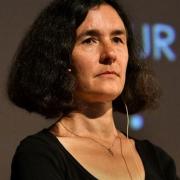
Speaker Information
Diana Ürge-Vorsatz serves as Vice Chair of IPCC’s Working Group III. She is a Professor at the Department of Environmental Sciences and Policy at the Central European University (CEU). She holds a Ph.D. from the University of California (Los Angeles and Berkeley). She served as the Acting Head of Department at CEU in 2002-2003 and directed the PhD program in 2003 – 2004. Diana was a Coordinating Lead Author in two Assessment Reports of the IPCC. She served on the United Nation’s Scientific Expert Group on Climate Change, and led the buildings-related work in the Global Energy Assessment. She serves as associate editor of the journal “Energy Efficiency”, and is a member of the Editorial Board of “Annual Reviews of Environment and Resources”. She was a Visiting Professor at the International Christian University of Tokyo and a Research Scholar at IIASA (International Institute for Applied Systems Analysis). She has been serving on the Governing and Advisory boards of several organizations, including Innogy (formerly RWE), the Austrian Climate and Energy Fund (KLIEN), the European Climate Foundation (ECF), the UK Energy Research Centre (UKERC), and the Hungarian Energy-Efficiency Cofinancing Program (HEECP), and the Club of Budapest. She is regularly invited to high-level review panels, such as that evaluating the work at Lawrence Berkeley National Laboratory and the EU’s Joint Research Centre. She received the Hungarian Republic’s Presidential Award “Medium Cross” in 2008, as well as the “Role Model” award in 2009 and was invited as a member of Academia Europaea in 2017.

Speaker Information
Clara Pregitzer is the Deputy Director of Conservation Science at the Natural Areas Conservancy. In this capacity, she leads the organization’s research and conservation efforts in natural areas in NYC as well as other U.S. cities. She led the Forest Assessment component of the Natural Areas Conservancy Ecological Assessment for NYC parkland and the development of the Forest Management Framework. She previously worked with NYC Park’s Natural Resources Group, conducting ecological assessments in over 1500 acres of New York City Parks.
She holds a B.S. in Forestry from Northern Arizona University, a M.S. in Ecology and Evolutionary Biology from the University of Tennessee and a PhD from Yale School of the Environment.
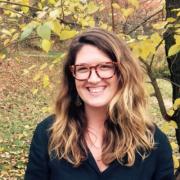
Speaker Information
Pete Raymond’s research focuses on the chemistry and ecology of inland waters. This includes research on the exchange of greenhouse gases between inland waters and the atmosphere, controls on the transport of terrestrial elements to inland and coastal waters, the metabolism of aquatic ecosystems, and how storms and droughts impact aquatic ecology. He also uses radiocarbon measurements to explore the age and turnover of carbon in aquatic ecosystems. Raymond is currently Editor and Chief of the American Geophysical Union’s journal Global Biogeochemical Cycles. Raymond received his BS from Marist College and his PhD from the Virginia Institute of Marine Science (College of William and Mary). He is a fellow of the American Association for the Advancement of Science, a member of the Connecticut Academy of Science and Engineering, received the Coastal and Estuarine Research Federations Cronin Award for Young Scientists, and is a ISI highly cited author.
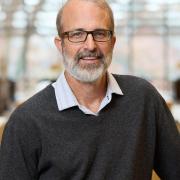
Speaker Information
An urban and land change scientist, Karen Seto is one of the world’s leading experts on contemporary urbanization and global change. She uses satellite remote sensing, field interviews, and modeling methods to understand how urbanization will affect the planet, including land change, food systems, biodiversity, and climate change. She has pioneered methods to reconstruct urban land use with satellite imagery and has developed novel methods to forecast urban expansion. She has conducted urbanization research in China for twenty years and in India for more than ten. Dr. Seto has served on numerous national and international scientific bodies. She was a coordinating lead author for the 2022 IPCC 6th Assessment Report and the 2014 IPCC 5th Assessment Report. For both reports she co-led the chapter on urban mitigation of climate change. She currently co-chairs the U.S. National Academies Climate Security Roundtable, established by the direction of Congress to help better understand and anticipate the ways climate change affects U.S. national security interests. She also co-chairs the U.S. National Academies Subcommittee on U.S.- China Scientific Engagement. From 2000 to 2008, she was faculty at Stanford, where she held joint appointments in the Woods Institute for the Environment and the School of Earth Sciences. She has received many awards for her scientific contributions, including the Outstanding Contributions to Remote Sensing Research Award from the American Association of Geographers.
Dr. Seto is an elected member of the U.S. National Academy of Sciences, the American Academy of Arts and Sciences, the Connecticut Academy of Science and Engineering, and a Fellow with the American Association for the Advancement of Science. She received a PhD in Geography from Boston University.


